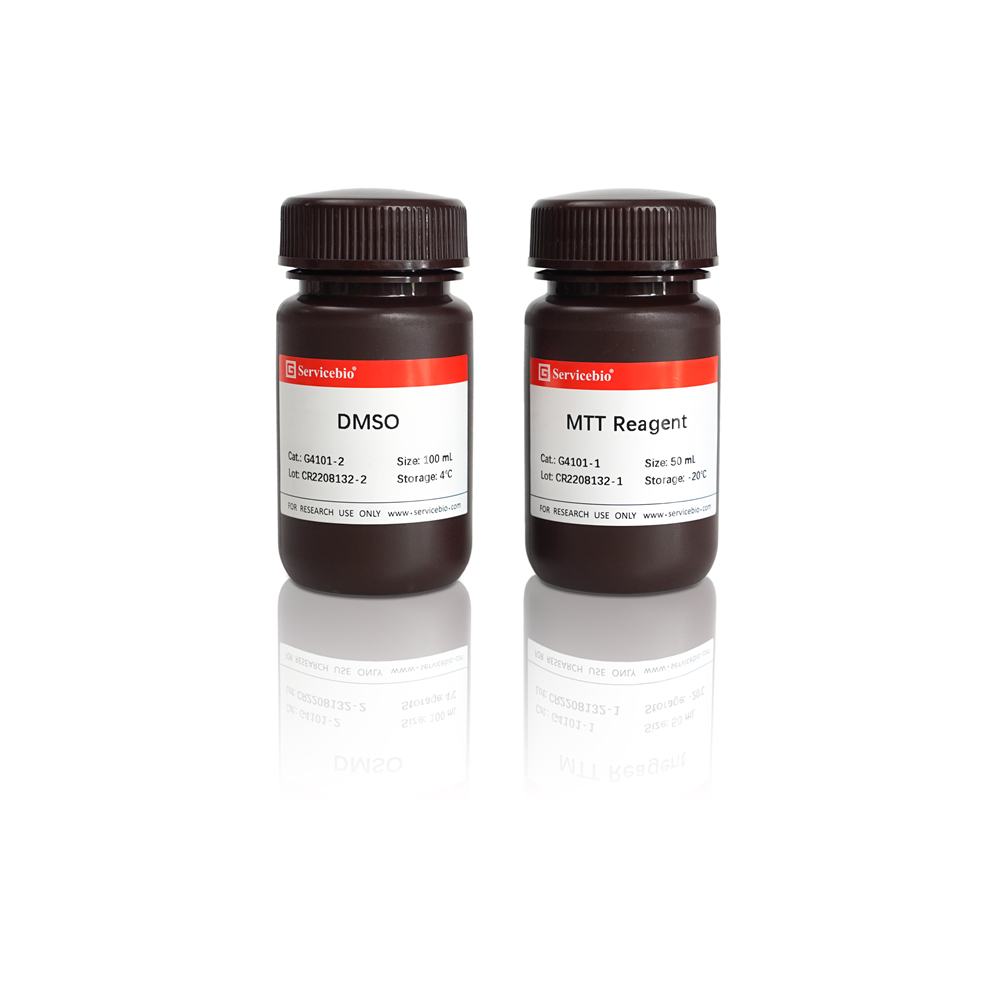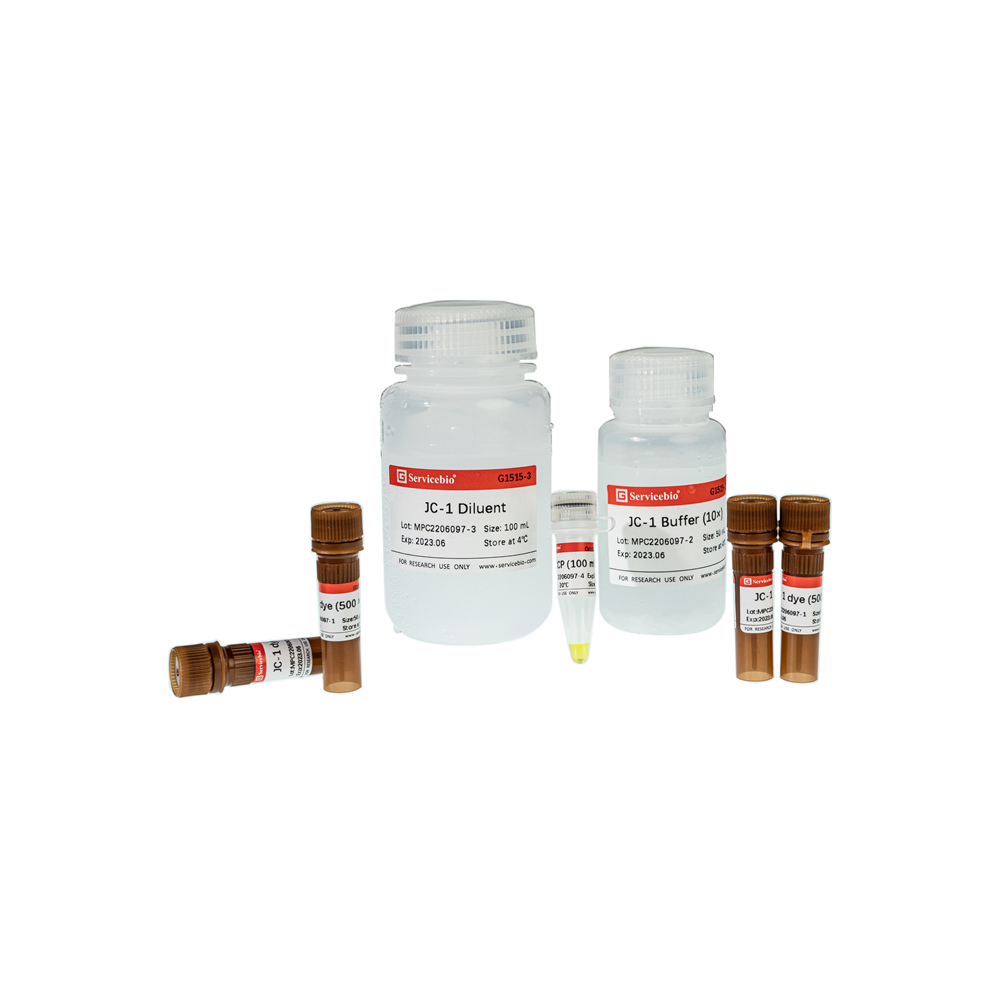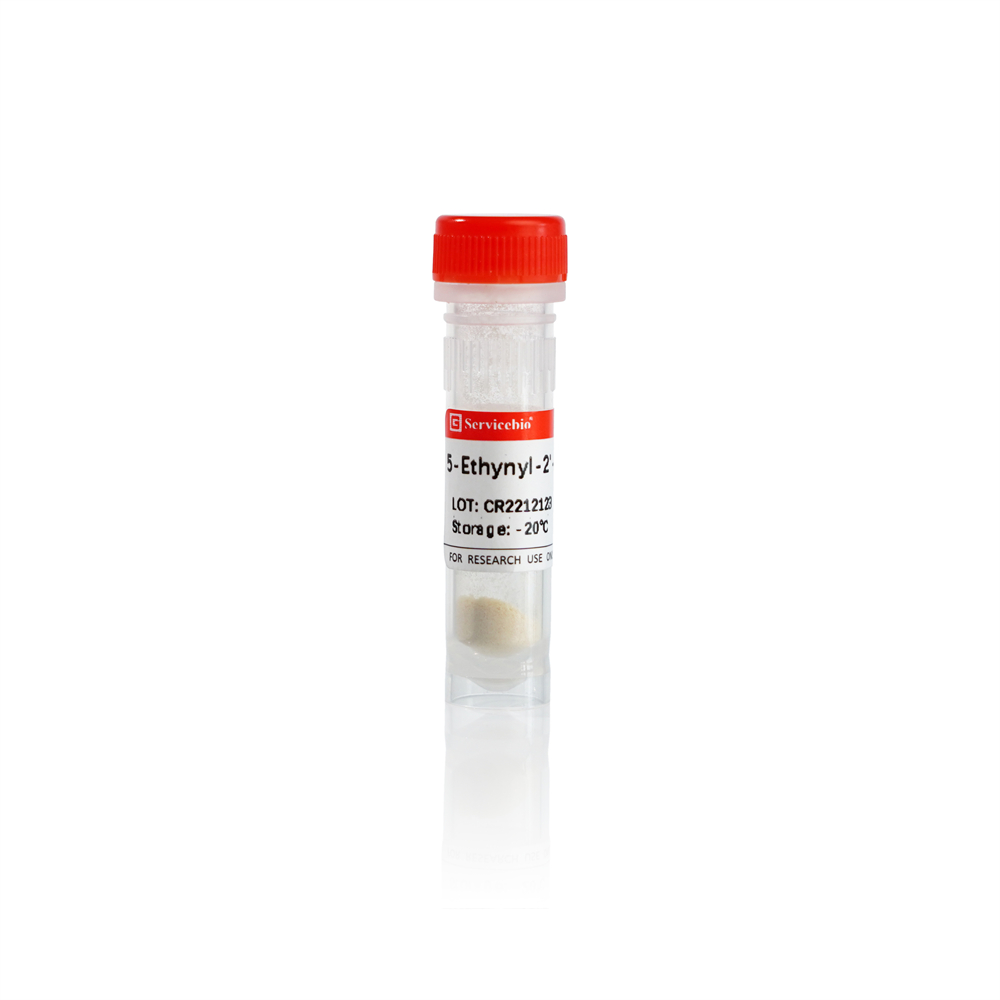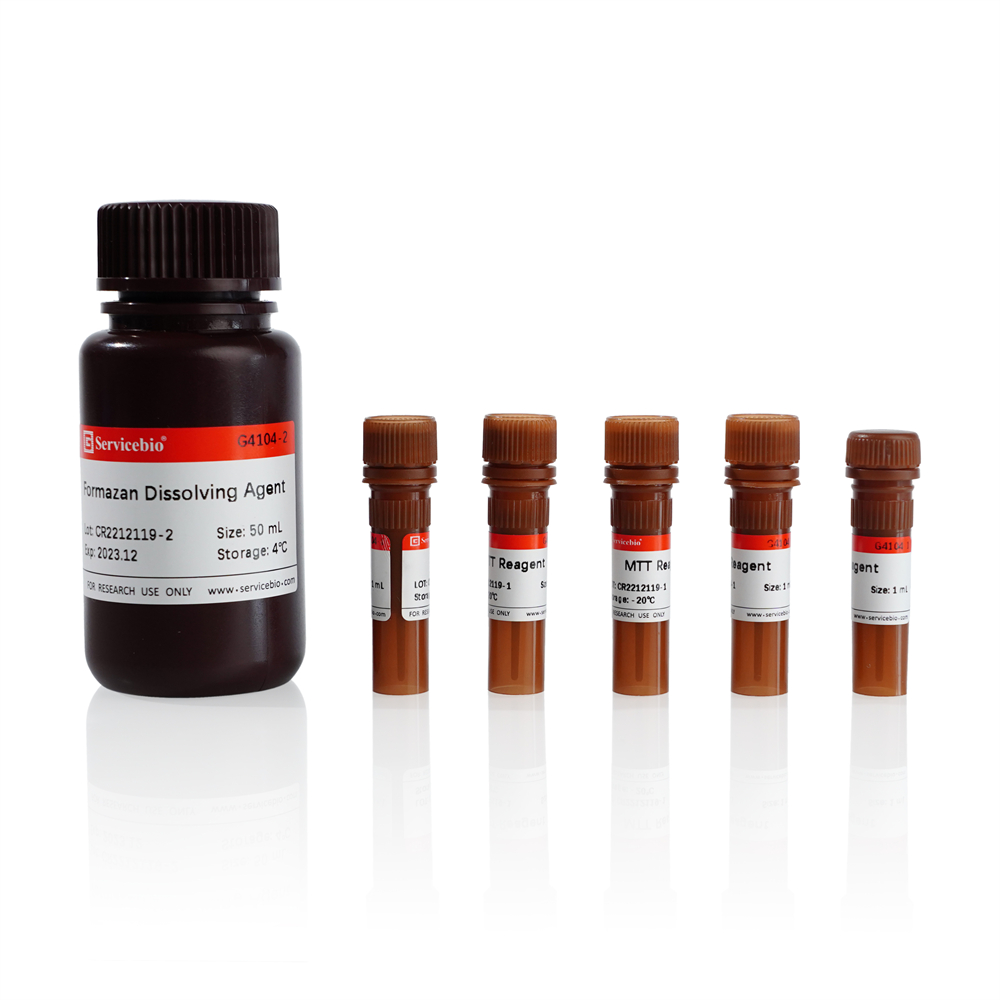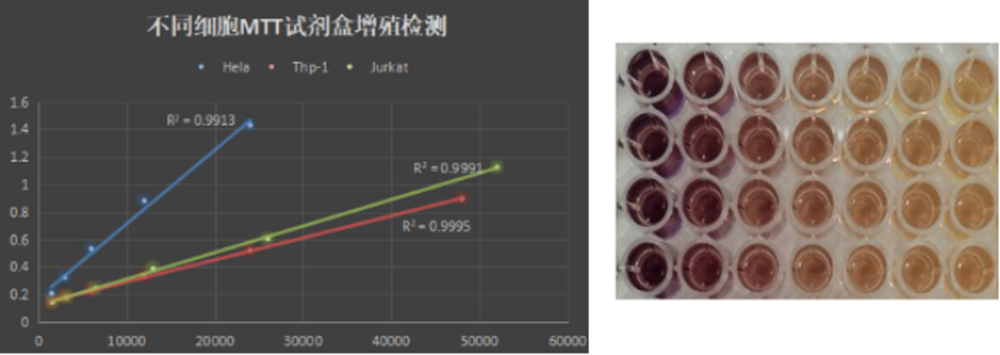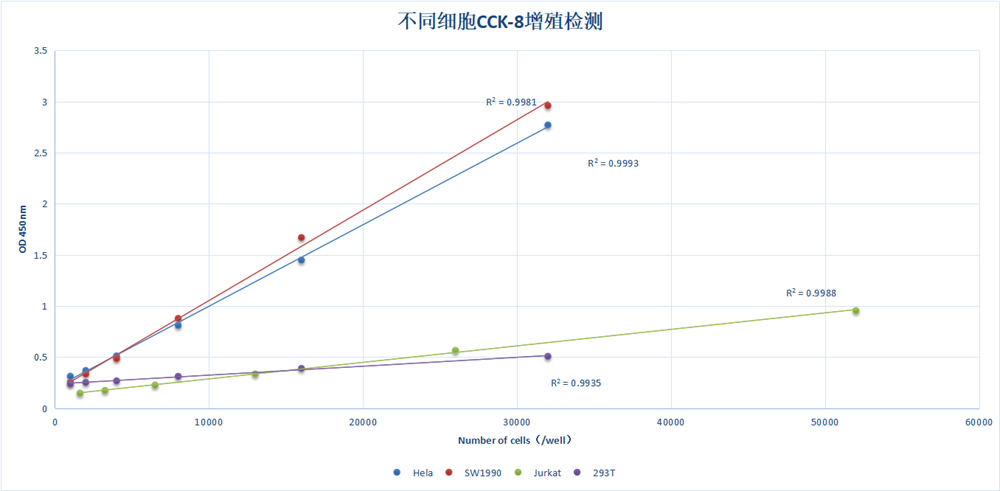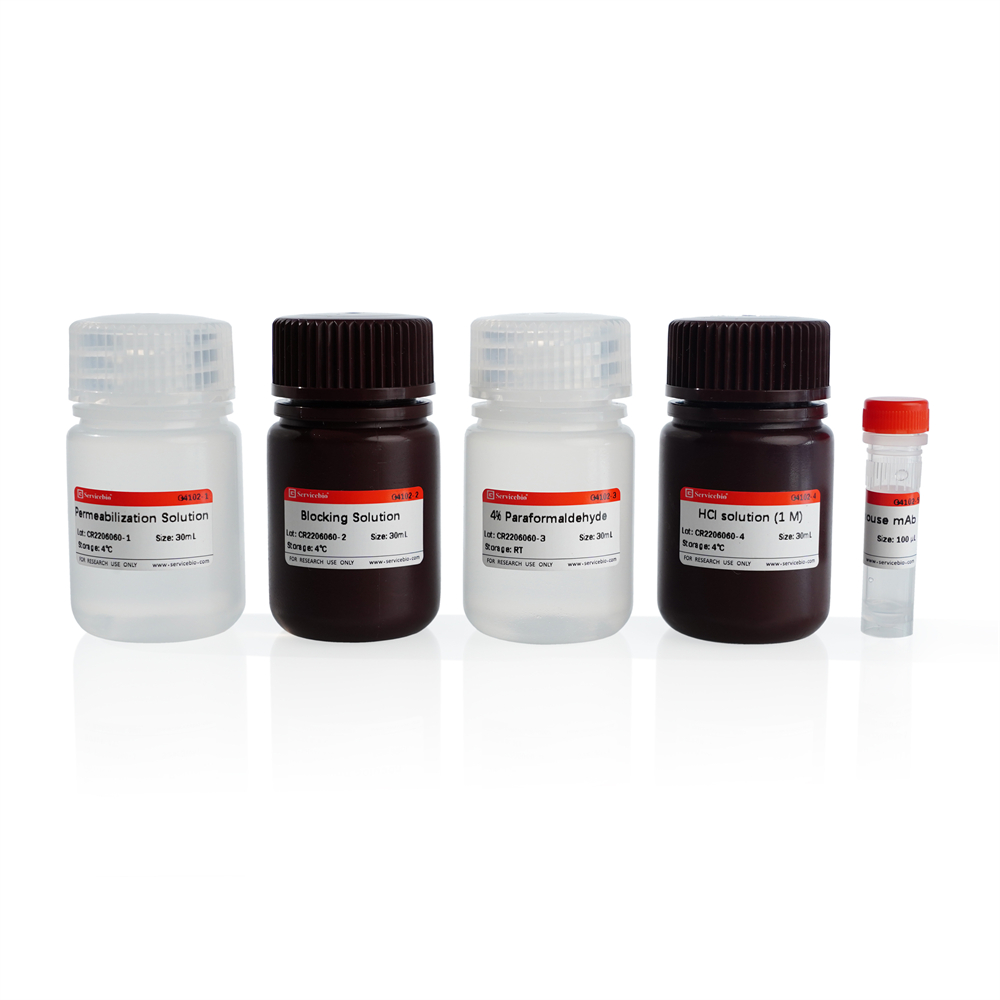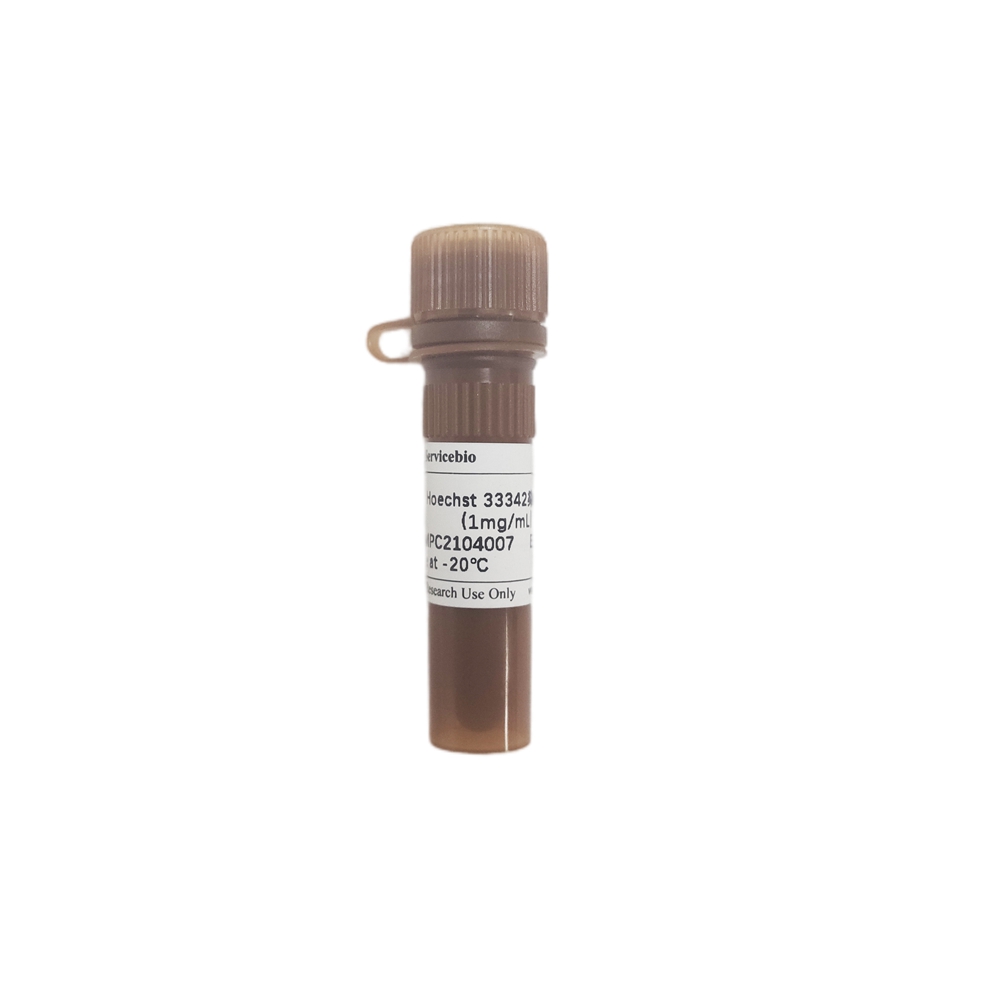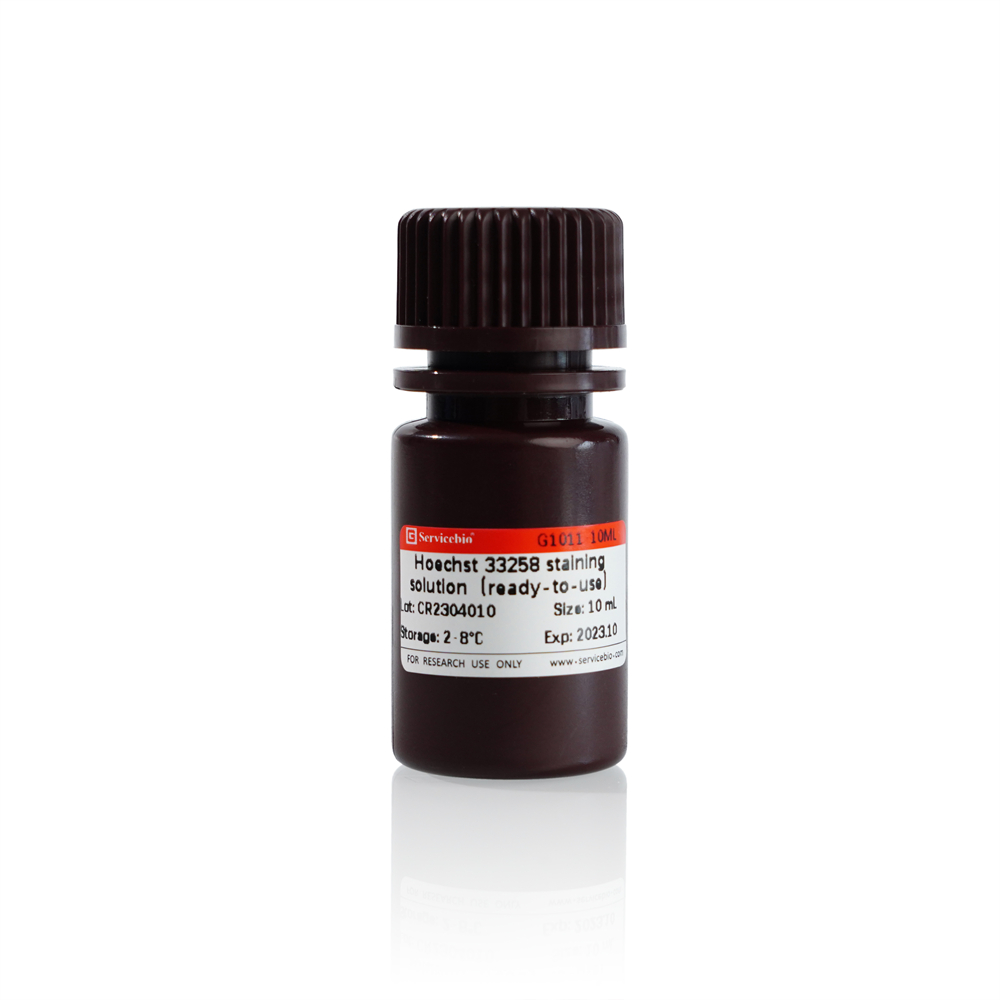Description
Please see this product in video . Thanks ,
Product Information
| Product Name | Cat.No | Spec. |
| MTT Cell Viability Assay Kit | G4101-200T | 200T |
| G4101-1000T | 1000T |
Introduction
This product MTT detection kit is widely used in the determination of cell proliferation and activity, as well as the detection of drug cytotoxicity. The full name of MTT is 3-(4,5-dimethyl-2-thiazolyl)-2,5-diphenyl-2-H-tetrazolium bromide, and the Chinese name is thiazolyl blue. The detection principle is that succinate dehydrogenase in the mitochondria of living cells can reduce the exogenous substrate MTT to water-insoluble blue-purple formazan (Formazan) and deposit in the cells, while dead cells have no such function. Then use dimethyl sulfoxide (DMSO) to dissolve the formazan deposits in the cells, and use a microplate reader to measure the light absorption value at a wavelength of 490 nm or 570 nm. proportional to the number of viable cells. According to the measured absorbance value (OD value), the number of living cells is judged. The larger the OD value, the more the number of living cells, and the stronger the cell activity (if the drug toxicity is measured, the lower the drug toxicity). When using this kit to detect cell viability, the supernatant needs to be removed after the reaction, so it cannot be used for the detection of suspended cells. For detection of suspended cells, it is recommended to use our other products (G4103 CCK-8 kit).
Storage and Handling Conditions
Transport in wet ice; store at 4°C away from light, valid for 3 months; or store at -20°C away from light, valid for 12 months. Avoid repeated freezing and thawing.
Components
| Component Number | Component | G4101-200T | G4101-1000T |
| G4101-1 | MTT Solution | 10 mL | 50 mL |
| G4101-2 | DMSO | 20 mL | 100 mL |
| Instruction Manual | 1 pc | ||
Steps
1. Treatment of adherent cells: After the cells adhere to the wall, dosing and transfection are carried out according to the experimental design;
2. Cell viability assay: add 20 μL of MTT working solution to each well and incubate for 4 h in a cell incubator;
3. Remove the supernatant: After the incubation, a small amount of purple crystals will appear at the bottom of the well plate, which can be observed under a 40x microscope. Carefully remove the supernatant solution from the plate with a pipette (do not suck up the purple crystals at the bottom);
4. Color development: Add 100 μL of DMSO to the well plate, incubate at 37°C for about 15 minutes (you can tap the bottom of the plate with your finger to shake slightly), until all the purple crystals are dissolved. If the purple crystals are smaller and less, the dissolution time will be shorter; if the purple crystals are larger, the dissolution time can be appropriately extended;
5. Detection: Measure the absorbance at a wavelength of 490 nm or 570 nm. If a 570 nm filter is not available, a 560-600 nm filter can be used.
Note
1. DMSO will solidify at lower temperatures and can be reconstituted at 37°C without affecting use.
2. The detection principle of this kit relies on the reaction catalyzed by dehydrogenase. If there are many reducing agents (such as some antioxidants) in the sample, which will interfere with the detection, try to remove them.
3. For your safety and health, please wear a lab coat and disposable gloves.
For Research Use Only!
|
Cat.No.
|
Product Name
|
Spec.
|
Operation
|
|---|
|
G0002-2L
|
Phosphate Buffered Saline (PBS, Powder)
|
2 L
|
|
|
G4001-100ML
|
0.25% Trypsin-EDTA (Soluble in PBS,Phenol Red)
|
100 mL
|

